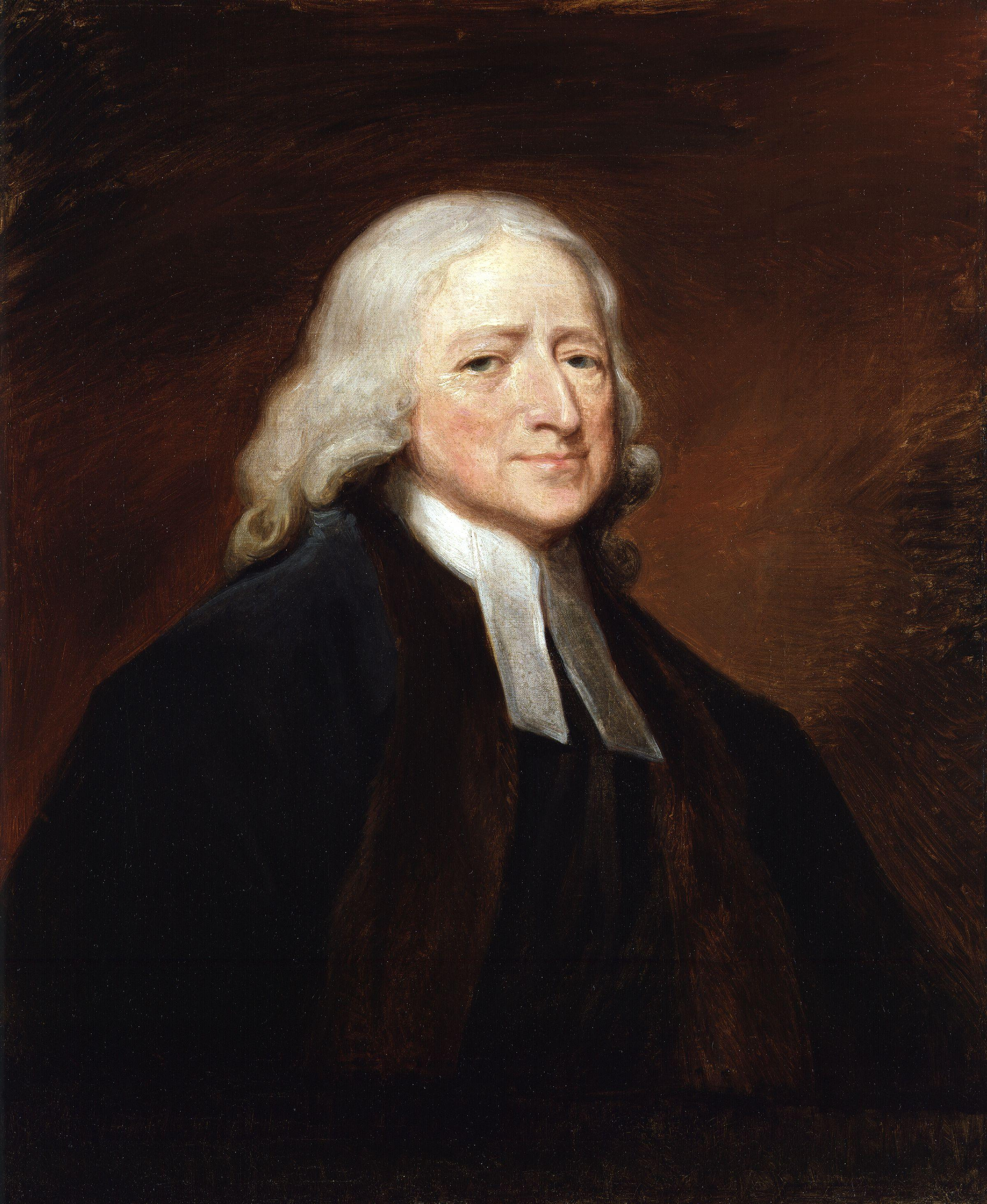
John Wesley
John Wesley (/ˈwɛsli/;[1] 28 June [O.S. 17 June] 1703 – 2 March 1791) was an English cleric, theologian, and evangelist who was a leader of a revival movement within the Church of England known as Methodism. The societies he founded became the dominant form of the independent Methodist movement that continues to this day.
This article is about the 18th-century Methodist leader. For other people named John Wesley, see John Wesley (disambiguation).
John Wesley
28 June [O.S. 17 June] 1703
2 March 1791 (aged 87)
- Cleric
- theologian
- academic (Lincoln College, Oxford)
- author
- Samuel Wesley (father)
- Susanna Wesley (mother)
- Samuel Wesley (brother)
- Mehetabel Wesley Wright (sister)
- Charles Wesley (brother)
1725
English
Educated at Charterhouse and Christ Church, Oxford, Wesley was elected a fellow of Lincoln College, Oxford, in 1726 and ordained as an Anglican priest two years later. At Oxford, he led the "Holy Club", a society formed for the purpose of the study and the pursuit of a devout Christian life. After an unsuccessful two year ministry in Savannah, Georgia, he returned to London and joined a religious society led by Moravian Christians. On 24 May 1738, he experienced what has come to be called his evangelical conversion. He subsequently left the Moravians and began his own ministry.
A key step in the development of Wesley's ministry was to travel widely and preach outdoors, embracing Arminian doctrines. Moving across Great Britain and Ireland, he helped form and organise small Christian groups (societies and classes) that developed intensive and personal accountability, discipleship, and religious instruction. He appointed itinerant, unordained evangelists—both women and men—to care for these groups of people. Under Wesley's direction, Methodists became leaders in many social issues of the day, including the abolition of slavery and support for women preachers.
Although he was not a systematic theologian, Wesley argued for the notion of Christian perfection and against Calvinism. His evangelicalism, firmly grounded in sacramental theology, maintained that means of grace sometimes had a role in sanctification of the believer; however, he taught that it was by faith a believer was transformed into the likeness of Christ. He held that, in this life, Christians could achieve a state where the love of God "reigned supreme in their hearts", giving them not only outward but inward holiness. Wesley's teachings, collectively known as Wesleyan theology, continue to inform the doctrine of Methodist churches.
Throughout his life, Wesley remained within the established Church of England, insisting that the Methodist movement lay well within its tradition.[2] In his early ministry years, Wesley was barred from preaching in many parish churches and the Methodists were persecuted; he later became widely respected, and by the end of his life, was described as "the best-loved man in England".[3]
Persecutions and lay preaching[edit]
From 1739 onward, Wesley and the Methodists were persecuted by clergy and religious magistrates for various reasons.[55] Though Wesley had been ordained an Anglican priest, many other Methodist leaders had not received ordination. And for his own part, Wesley flouted many regulations of the Church of England concerning parish boundaries and who had authority to preach.[56] This was seen as a social threat that disregarded institutions. Clergy attacked them in sermons and in print, and at times mobs attacked them. Wesley and his followers continued to work among the neglected and needy. They were denounced as promulgators of strange doctrines, fomenters of religious disturbances; as blind fanatics, leading people astray, claiming miraculous gifts, attacking the clergy of the Church of England, and trying to re-establish Catholicism.[56]
Wesley felt that the church failed to call sinners to repentance, that many of the clergy were corrupt, and that people were perishing in their sins. He believed he was commissioned by God to bring about revival in the church, and no opposition, persecution, or obstacles could prevail against the divine urgency and authority of this commission. The prejudices of his High-church training, his strict notions of the methods and proprieties of public worship, his views of the apostolic succession and the prerogatives of the priest, even his most cherished convictions, were not allowed to stand in the way.[57]
Seeing that he and the few clergy co-operating with him could not do the work that needed to be done, Wesley was led, as early as 1739, to approve local preachers. He evaluated and approved men who were not ordained by the Anglican Church to preach and do pastoral work. This expansion of lay preachers was one of the keys of the growth of Methodism.[58]





